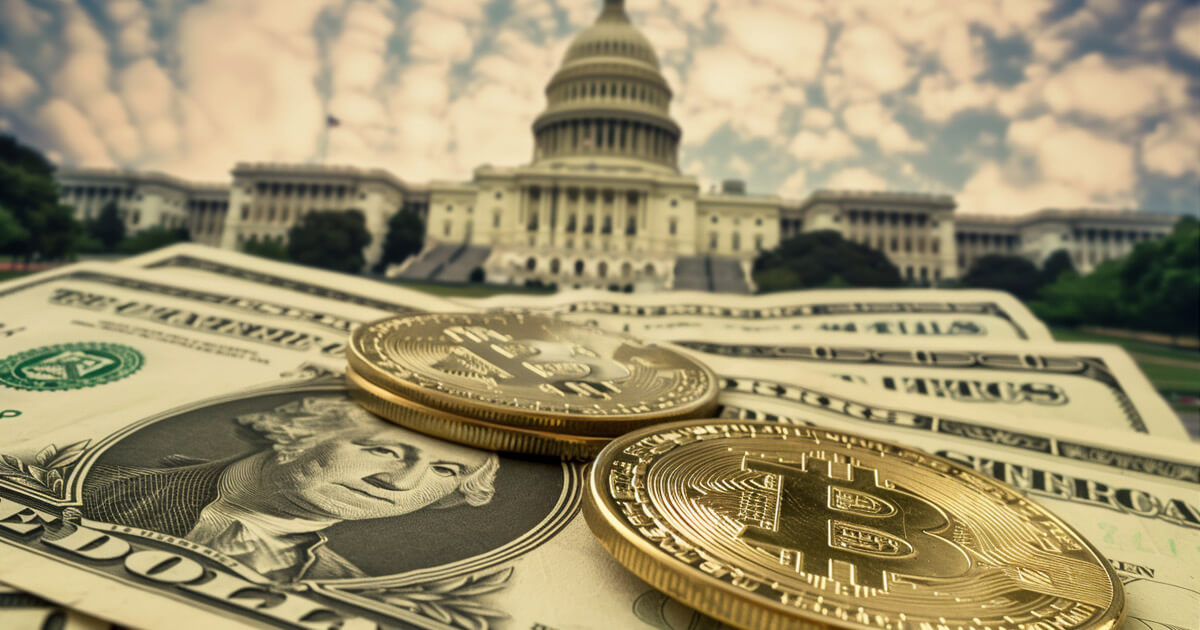
Senate legislation aims to prohibit presidential profits from cryptocurrency amid Trump memecoin dispute.
Senate Democrats have put forward a proposal that would prohibit current presidents, legislators, and their families from issuing, supporting, or possessing cryptocurrency.
The End Crypto Corruption Act, revealed on May 6, aims to stop elected officials from gaining personal advantages from digital currencies while influencing policy decisions.
Senator Jeff Merkley (D-OR) stated that the bill comes just days ahead of a Senate vote on the GENIUS Act, which seeks to establish a regulatory framework for stablecoins that could significantly alter the governance of digital assets in the country.
The urgency of this proposal is underscored by the rapid growth of USD1, a stablecoin associated with President Donald Trump’s family, which recently climbed to a market valuation exceeding $2.1 billion. Democratic leaders perceive this new bill as essential to preventing potential conflicts of interest during a crucial regulatory turning point.
The End Crypto Corruption Act would prevent the President, Vice President, high-ranking executive officials, members of Congress, and their immediate families from issuing or endorsing cryptocurrencies or gaining financially from such actions. Offenders would face penalties that could include fines of up to $1 million and forfeiture of profits.
Senator Merkley described the legislation as a necessary response to what he deemed “profoundly corrupt” practices that enable influential officials to gain from crypto speculation.
He stated, “Currently, individuals attempting to gain influence with the president can enrich him personally by purchasing cryptocurrency he owns or manages. This is an extremely corrupt setup. It threatens our national security and diminishes public faith in government. We must put an end to this corruption now.”
Senate Majority Leader Chuck Schumer shared these concerns, cautioning that individuals purchasing tokens associated with sitting officials compromises democratic integrity.
This legislative initiative specifically addresses Trump’s increasing involvement in the cryptocurrency realm. The market capitalization of USD1 surged shortly after its introduction, bolstered by marketing tied to Trump’s persona. The issuer of USD1, World Liberty Financial, designed the token to direct substantial profits towards an entity connected to Trump.
Additionally, an exclusive dinner for the top holders of the TRUMP memecoin is scheduled for this month, where the leading 25 holders will have VIP access to the president. Surprisingly, even some supporters within Trump’s party have remained quiet about the ethical implications of this event, which allows significant TRUMP memecoin holders (including foreign nationals) to interact closely with the president. The Trump family and insiders control 80% of the total TRUMP supply, with only 10% available to the public.
Members from the libertarian segment have expressed worries about government interference in private financial activities, while others argue that ethical standards should adapt to the evolving financial landscape of cryptocurrencies. Senator Cynthia Lummis has mentioned her openness to stricter ethical standards but raised questions about the constitutionality of the bill’s broad scope.
The GENIUS Act faces challenges as it approaches a crucial vote due to last-minute opposition. Although it has bipartisan support, the introduction of the End Crypto Corruption Act shortly before the anticipated vote has created tension. Some Republican senators have shown willingness to propose amendments focusing on ethics, while others oppose changes they perceive as driven by political motivations.
Though a small percentage of Congress currently declares cryptocurrency holdings, with only 13 lawmakers doing so, the broad language of the bill could necessitate divesting some assets and reshape how lawmakers relate to digital currencies. Passive investments, like index funds, may be spared, though the bill’s language is still being reviewed.
The proposal also garners backing from external organizations. Virginia Canter, chief counsel for Anticorruption and Ethics at Democracy Defenders Action, asserted that new financial products like stablecoins should not become tools for corruption. Public Citizen has also thrown its support behind the bill.
With the GENIUS Act vote planned for May 8, the introduction of the End Crypto Corruption Act injects new uncertainty into the Senate’s discussions around stablecoin regulation.
Regardless of whether the ethics bill proceeds on its own or connects with existing legislation, the controversy surrounding the swift rise of USD1 and the notable TRUMP memecoin gala dinner has highlighted conflict-of-interest issues as digital asset regulation nears a critical phase.



















Post Comment